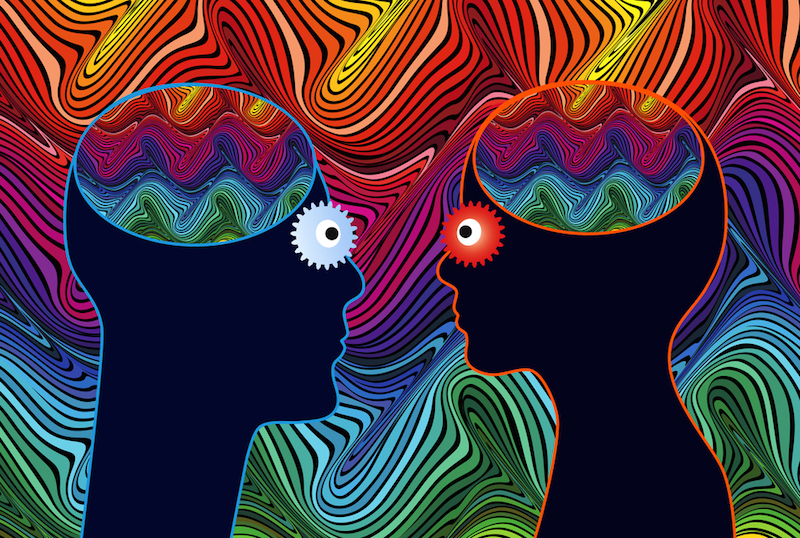
Embodied cognition is the idea that the body is as much of a resource for intelligence and knowledge as the mind. The physical body’s interaction with the environment, through sensory, perceptual, and social engagements provides a rich experience of external information that can be processed and integrated by the brain. Likewise, introspective senses such as proprioception, interoception, and emotional responses communicate internal states of being in parallel with, or in response to, incoming sensations. In fact, the brain cannot and does not work in isolation, without the participation of the body and corresponding emotions.
Classic serotonergic psychedelics are fascinating tools for use in therapy because they alter the conscious and felt sense of the self. By changing the way people relate to their physical realities, psychedelics can awaken the relationship between the mind and body, encouraging enhanced embodiment. Additionally, psychedelic-assisted therapy offers a space to connect deeply with and understand internal emotional landscapes. Of course, different psychedelic medicines might induce unique perceptual changes; yet the somatically-oriented awareness of coming home to the body is opened through experiences of either/both unification or/and transcendence of self.
Awareness of the Body
Central to the psychedelic experience is a distorted (often heightened) awareness of bodily sensations and processes. These noticings may lead to profound insights across the mind-body, fostering a deeper appreciation for allowing fluidity between perception, emotions, and logic. Because cognitive processes are deeply intertwined with felt experiences and sensorimotor interactions with the environment, psychedelics might support the understanding of somatic information as a source of knowledge. Tapping into this deep well of bodily intuition can foster a deeper sense of wholeness, connection to self, authenticity, and decision making.
Psychedelics also carry the remarkable ability to dissolve boundaries between internal and external states, known as “ego dissolution.” This natural ability to embody the interconnectedness of the self with the world, human and nonhuman beings alike, seems to play an important healing role in psychedelic therapy. Integrating these experiences into clients’ concepts of self, knowing that they have access to these intelligences and the capacity to bridge comprehension across body-mind can support personal agency and control.
Facilitating embodied cognition may be a beneficial tool when working with trauma; however, in these spaces there is an even greater emphasis on slowing down and honoring the body. It’s important to remember that in the immediate unfolding of intense events, dissociation might be a necessary protective mechanism. Developing compassion for adaptive responses and a tolerance for sensorimotor and arousal sensations is a key ingredient of integration of the body-mind in trauma resolution.
Conclusion
Psychedelic medicines may act as a potent avenue for self-discovery, bridging external environments, internal states of being, bodily experiences, and thought processes through embodied cognition. While psychedelic experiences vary, individuals may encounter adjustments around how they relate to and within themselves; these shifts invite rich discussions about embodiment with meaningful and lasting impacts.







